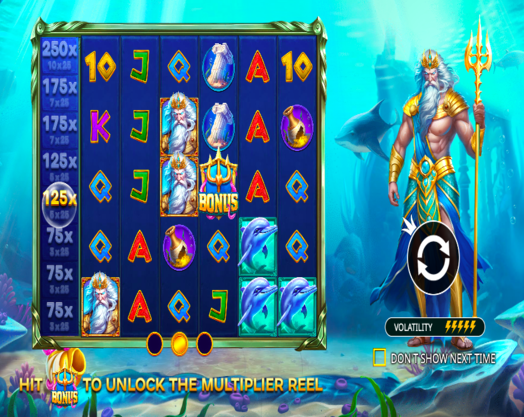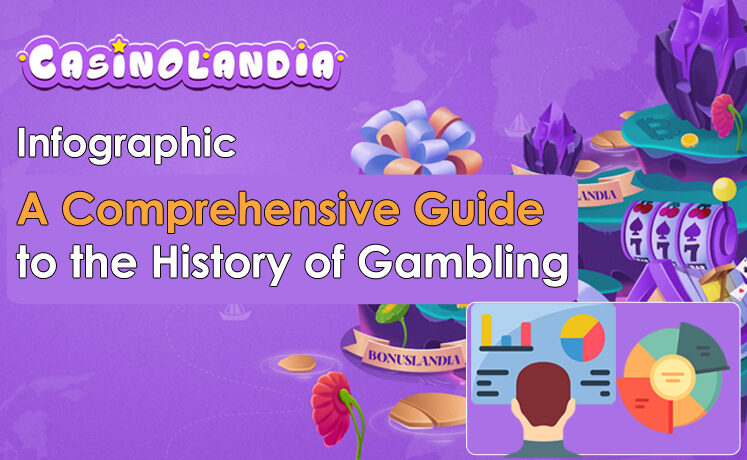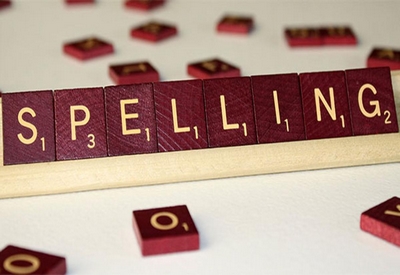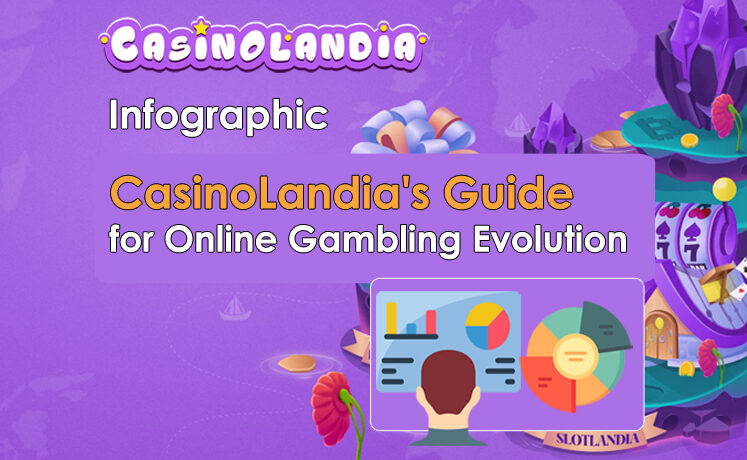CasinoLandia’s Guide to Gambling Addiction – Psychopathological Explanation and Tips for Overcoming it
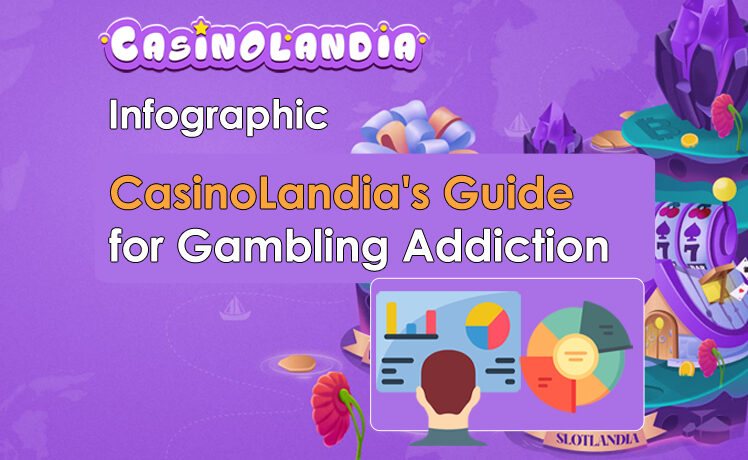

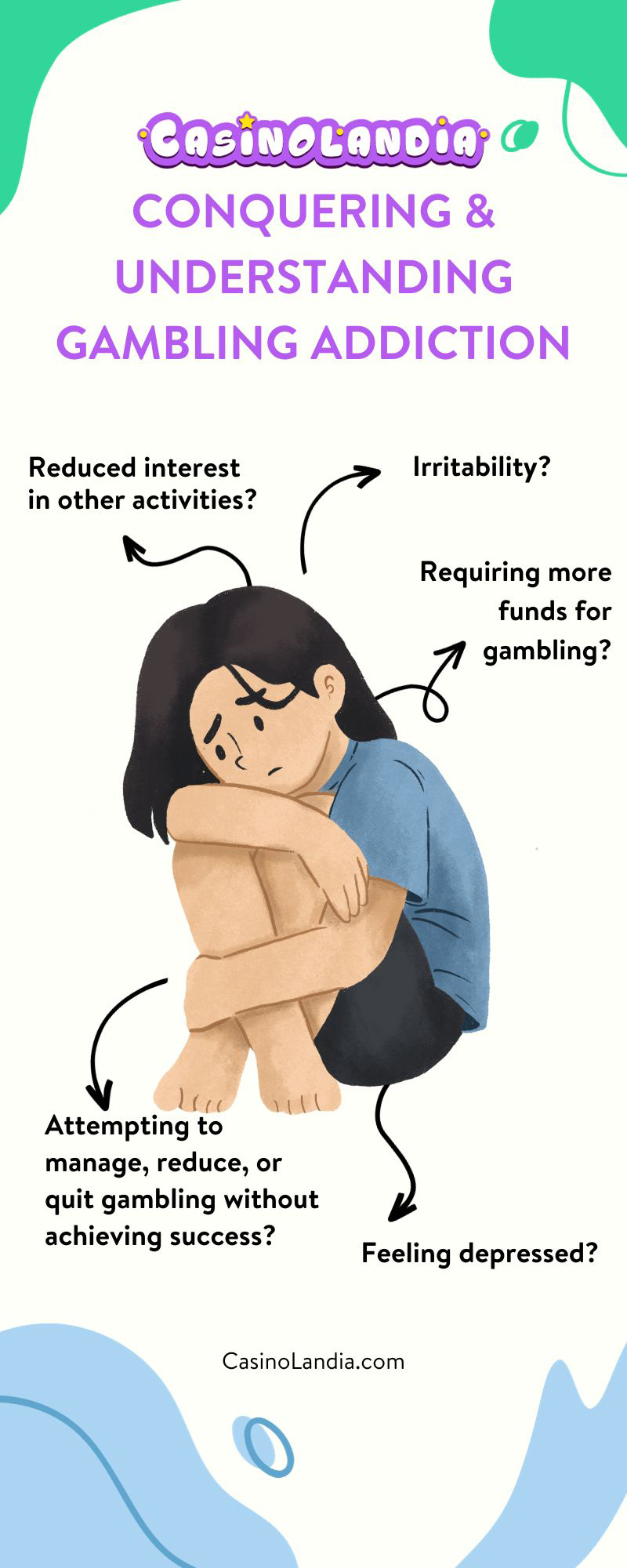

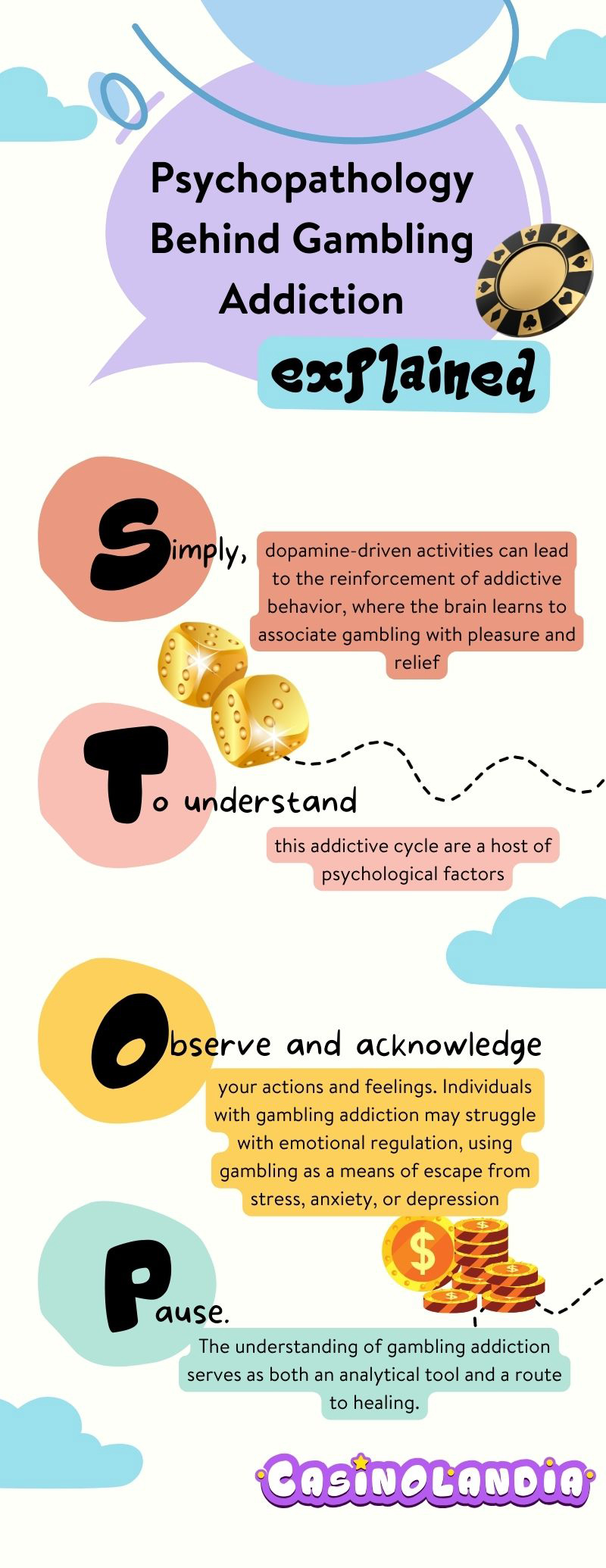

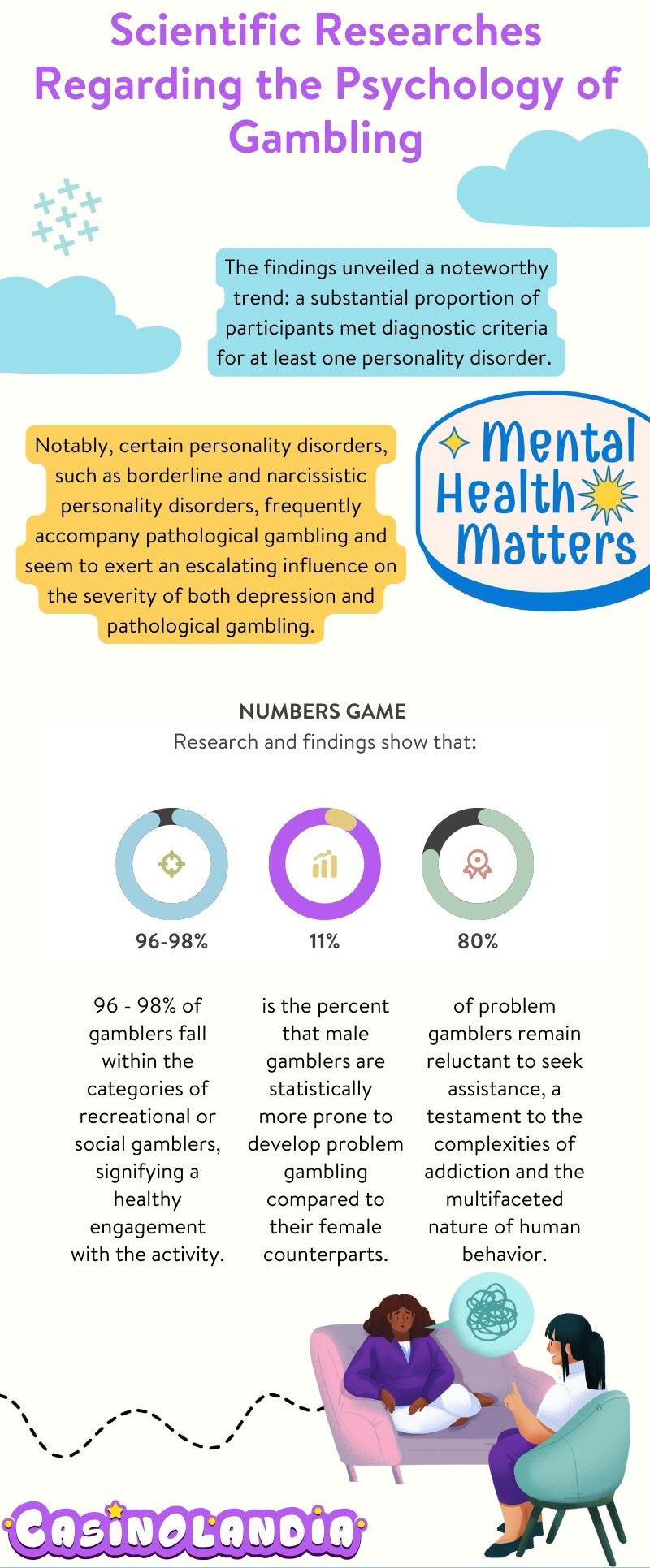



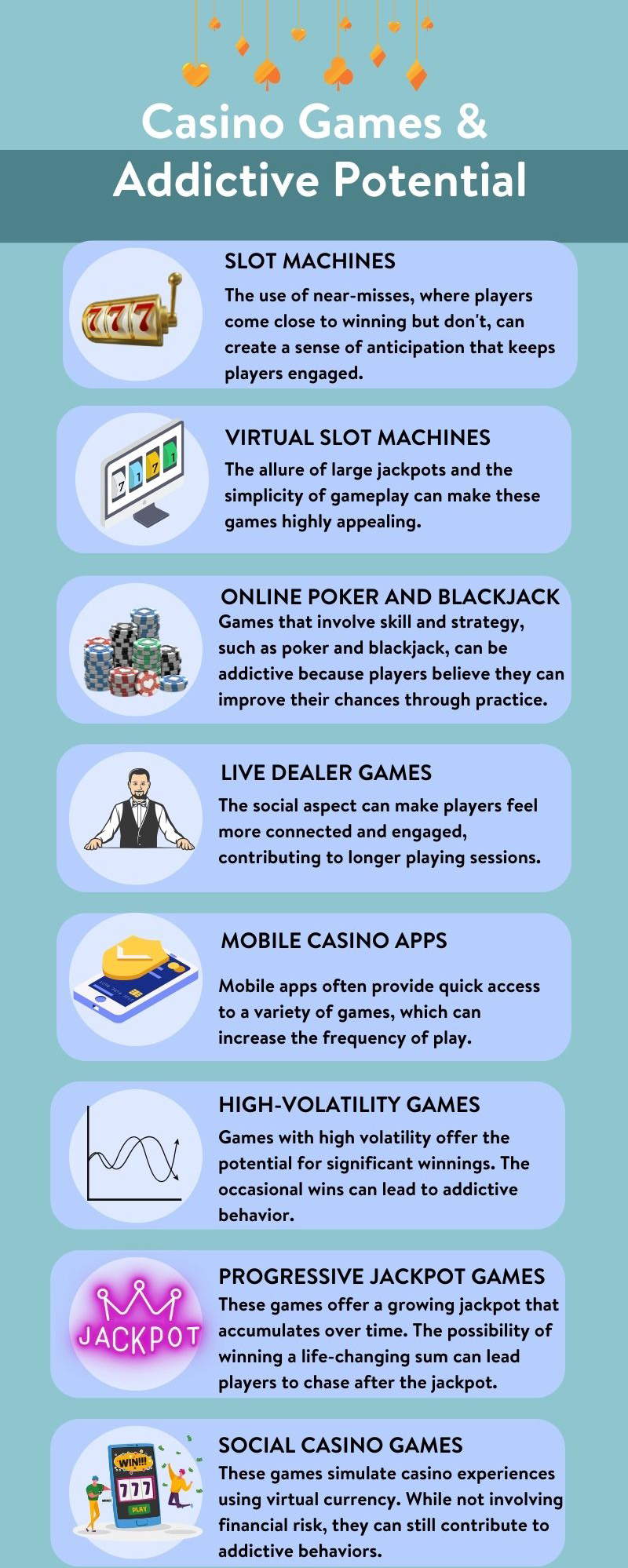

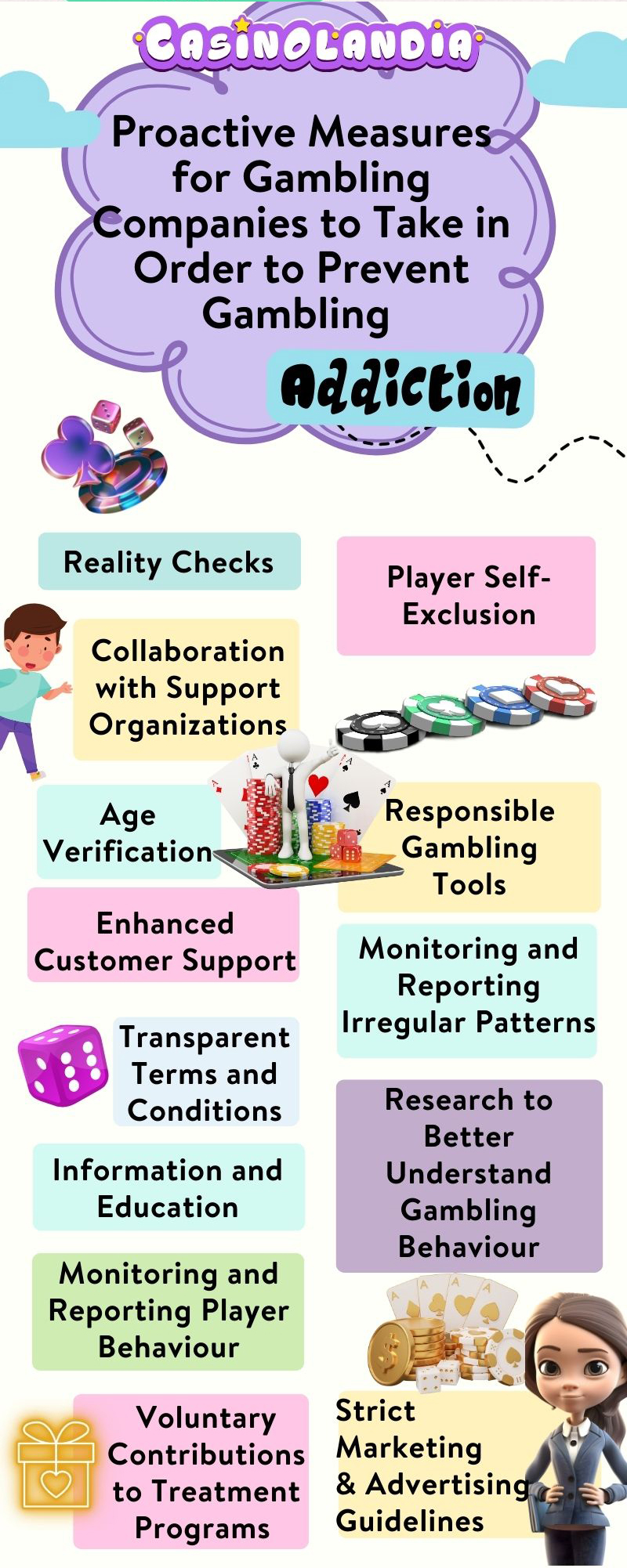

The Psychopathology Behind Gambling Addiction
The psychopathology behind gambling addiction is a multifaceted interplay of cognitive, emotional, and neurological processes that can ensnare individuals in a relentless cycle of compulsion and distress. At its core, gambling addiction, also known as pathological gambling or gambling disorder, is characterized by an overwhelming urge to gamble despite the negative consequences it brings to one's life. This compulsion is often fueled by the anticipation of reward and the thrill of uncertainty, tapping into the brain's reward system and triggering the release of dopamine, a neurotransmitter that is actually associated with pleasure and reinforcement. Over time, this dopamine-driven feedback loop can lead to the reinforcement of addictive behavior, where the brain learns to associate gambling with pleasure and relief.
Underlying this addictive cycle are a host of psychological factors. Many individuals who develop gambling addiction exhibit impulsive traits and heightened sensation-seeking tendencies, making them more susceptible to the quick highs and lows that gambling can provide. Additionally, individuals with gambling addiction may struggle with emotional regulation, using gambling as a means of escape from stress, anxiety, or depression. The act of gambling itself may provide a temporary sense of control and distraction from life's challenges. Paradoxically, as losses accumulate, these emotional issues can intensify, creating a vicious cycle where gambling becomes a coping mechanism for the very problems it exacerbates.
Furthermore, the availability of gambling options and the advancements in technology have contributed to the accessibility and convenience of gambling, making it easier for individuals to engage in compulsive behavior. Online casinos, mobile apps, and interactive platforms provide a continuous stream of stimuli that can heighten the addictive potential of gambling. The “near-miss” phenomenon, where players come close to winning but fall short, can be particularly impactful, as it maintains hope and excitement, even amidst repeated losses.
Understanding the psychopathology of gambling addiction involves recognizing the intricate web of factors that sustain it. From the cognitive biases that skew perceptions of probability to the emotional vulnerabilities that drive escapism, the disorder's roots run deep. This understanding, however, is not just a means of analysis but also a pathway to recovery. By addressing the underlying psychological components and learning healthier coping mechanisms, individuals can regain control over their lives and break free from the grips of gambling addiction.
Scientific Researches Regarding the Psychology of Gambling
A preliminary study conducted in 2012 by S. Barrault and Varescon delved into the psychopathology of online pathological gamblers. The findings unveiled a noteworthy trend: a substantial proportion of participants met diagnostic criteria for at least one personality disorder. Particularly, those who were classified as pathological online gamblers exhibited personality traits associated with cluster C, which encompasses avoidant, dependent, and obsessive-compulsive personalities. Interestingly, variations emerged when comparing personality disorders based on the type of gambling: offline gamblers were more prone to cluster B disorders, whereas their online counterparts exhibited a higher prevalence of cluster C disorders. Notably, certain personality disorders, such as borderline and narcissistic personality disorders, frequently accompany pathological gambling and seem to exert an escalating influence on the severity of both depression and pathological gambling. It's worth highlighting that a strong correlation between pathological gambling and depression was observed. Furthermore, the study's results suggest robust correlations between online pathological gambling, internet addiction, and offline pathological gambling.
Research conducted by the AGA, American Gaming Association, sheds light on the diverse spectrum of gambling behaviors. Their estimations suggest that a significant majority, around 90%, of gamblers practice responsible gaming, devoid of any compulsive tendencies. This aligns with consistent findings revealing that approximately 96% to 98% of gamblers fall within the categories of recreational or social gamblers, signifying a healthy engagement with the activity.
Nevertheless, the motivations driving unhealthy gaming behaviors among gambling addicts encompass a range of factors. These include the allure of escapism, the deceptive sense of control, the pursuit of monetary gains, and the act of chasing losses. A pivotal study conducted in 2003 by researchers from Yale unveiled an intriguing facet: pathological gambling appears to be ingrained within the neural circuitry of the brain. Dr. Mark Potenza's exploration of neurological responses further illuminated this concept, demonstrating that problem and pathological gamblers exhibit distinct brain reactions when exposed to gambling-related stimuli.
A subsequent study conducted in 2013 by Potenza's team deepened the understanding, revealing that increased brain activity contributes to the heightened vulnerability of male gamblers—statistically 11% more prone to develop problem gambling compared to their female counterparts. Furthermore, demographic factors also intertwine with gambling behaviors. Studies unveil a lower susceptibility among gamblers aged 65 and above to develop problematic habits. Conversely, the age group spanning 18 to 29 exhibits the highest risk of falling into the clutches of problem gambling. This alignment of age-related recklessness with gambling habits underscores the intricate interplay between general behavioral tendencies and gambling behaviors.
Alarming yet enlightening, research reveals that despite the availability of treatment, a significant 80% of problem gamblers remain reluctant to seek assistance, a testament to the complexities of addiction and the multifaceted nature of human behavior.
Casino Games with Higher Addictive Potential
Certain types of online casino games are often considered more addictive than others due to their design and mechanics. However, it's essential to remember that individual susceptibility to addiction varies, and factors such as personal preferences, psychological traits, and past experiences can all contribute to addictive behavior. That being said, some online casino games that are commonly associated with higher addictive potential include:
- Slot Machines: Slot games are well-known for their rapid gameplay, colorful visuals, and enticing sounds. The use of near-misses, where players come close to winning but don't, can create a sense of anticipation that keeps players engaged.
- Virtual Slot Machines: Similar to traditional slot machines, virtual slots often incorporate advanced graphics, animations, and immersive themes. The allure of large jackpots and the simplicity of gameplay can make these games highly appealing.
- Online Poker and Blackjack: Games that involve skill and strategy, such as poker and blackjack, can be addictive because players believe they can improve their chances through practice. This can lead to a sense of control and the desire to keep playing to prove their skills.
- Live Dealer Games: Live dealer games deliver a more interactive and social experience by using real dealers streamed in real-time. The social aspect can make players feel more connected and engaged, contributing to longer playing sessions.
- Mobile Casino Apps: The convenience of playing on mobile devices can make it easier for players to engage in prolonged gambling sessions. Mobile apps often provide quick access to a variety of games, which can increase the frequency of play.
- High-Volatility Games: Games with high volatility offer the potential for significant winnings but also come with higher risks. The intermittent reinforcement from occasional big wins can lead to addictive behavior.
- Progressive Jackpot Games: These games offer a growing jackpot that accumulates over time. The possibility of winning a life-changing sum can lead players to chase after the jackpot, even after experiencing losses.
- Social Casino Games: These games simulate casino experiences without real money wagering, using virtual currency. While not involving financial risk, they can still contribute to addictive behaviors due to their casino-like design and mechanics.
It's vital to approach online casino games with caution and self-awareness. If you find that your gambling habits are becoming problematic or affecting your well-being, seeking support and professional help is crucial. Responsible gambling practices, setting limits, and being mindful of your motivations can all contribute to a healthier relationship with online casino games.
CasinoLandia’s Tips for Overcoming Gambling Addiction
Presenting a concise yet comprehensive guide to overcoming gambling addiction: a compilation of actionable tips and essential information. This table outlines effective strategies for breaking free from the grips of gambling addiction and regaining control over one's life. Each tip is paired with pertinent information, providing a well-rounded understanding of the steps individuals can take to overcome this challenging struggle. Whether you're seeking personal recovery or aiming to support someone on their journey, this table offers a roadmap to recovery and a path towards a brighter future.
| Tips for Overcoming Gambling Addiction | Information |
|---|---|
| Self-Awareness and Acceptance | Acknowledge the presence of a gambling problem and accept the need for change. – Reflect on personal triggers and emotional states that lead to gambling urges. |
| Seek Professional Help | Consult a mental health professional or addiction counselor with expertise in gambling disorders. – Explore therapy options such as cognitive-behavioral therapy (CBT) to identify and modify unhealthy thought patterns and behaviors. |
| Set Financial Boundaries | Develop a strict budget and financial plan to regain control over spending habits. – Limit access to funds dedicated solely for essential needs and expenses. |
| Block Gambling Access | Use website blockers and self-exclusion tools provided by casinos and gambling platforms. – Restrict access to gambling-related apps and websites on all devices. |
| Build Supportive Relationships | Openly communicate with friends and family about the struggle with gambling addiction, seeking their understanding and support. – Join support groups or engage in online communities of individuals facing similar challenges. |
| Healthy Coping Strategies | Learn and practice stress-reduction techniques, including mindfulness, meditation, or yoga. – Channel energy into hobbies, physical activities, and creative outlets to fill the void left by gambling. |
| Time Management | Create a structured daily routine to minimize idle time, reducing opportunities for impulsive gambling behavior. – Set achievable goals and allocate time for personal growth and leisure activities. |
| Celebrate Progress | Acknowledge and celebrate each step towards recovery, regardless of its size. – Reward yourself with non-gambling-related treats for reaching milestones. |
| Replace Gambling with Positive Habits | Replace gambling routines with positive habits like exercising, reading, or spending valuable quality time with loved ones. – Engage in activities that provide a sense of accomplishment and fulfillment. |
| Plan for Relapse Prevention | Develop a relapse prevention plan that outlines strategies to cope with triggers and urges. – Identify warning signs and create a contingency plan to avoid succumbing to temptation. |
| Stay Informed and Educated | Continue learning about gambling addiction, its triggers, and effective strategies for managing it. – Stay updated on personal progress and maintain vigilance against potential setbacks. |
“Remember, overcoming gambling addiction is a journey that requires patience, determination, and ongoing effort. These tips, when applied consistently, can help individuals regain control of their lives and pave the way to a healthier, happier future.”
Self-awareness and Acceptance
At the core of the journey to overcome gambling addiction lies the crucial step of self-awareness and acceptance. It involves a deep introspection that requires acknowledging the existence of a gambling problem and embracing the necessity for transformation. This acknowledgment marks the starting point towards recovery, enabling individuals to confront the reality of their situation with honesty and courage. Simultaneously, self-awareness extends to an exploration of the intricate web of personal triggers and emotional states that drive the compulsion to gamble. By delving into the emotions, stressors, and underlying motivations that lead to gambling urges, individuals can unearth the root causes of their behavior. This process of self-reflection empowers individuals to dismantle the automatic responses that fuel their addiction. With self-awareness as a cornerstone, the path toward lasting change becomes illuminated, fostering the strength and understanding needed to build a life free from the grip of gambling.
Seek Professional Help
Recognizing the complexity of gambling addiction and the challenges it poses, seeking professional help emerges as a pivotal stride toward recovery. Collaborating with a mental health expert or an addiction counselor specializing in gambling disorders provides a tailored and comprehensive approach to addressing the multifaceted aspects of the condition. These professionals bring a wealth of experience and knowledge, offering guidance, support, and a non-judgmental space for individuals to openly discuss their struggles. One therapeutic avenue that holds significant promise is cognitive-behavioral therapy (CBT), a well-established technique. CBT delves into the intricate interplay between thoughts, feelings, and actions, allowing individuals to identify detrimental thought patterns and behaviors associated with gambling. Through guided sessions, individuals can reshape these patterns, replacing them with healthier alternatives that promote self-control and coping strategies. The guidance of a skilled therapist empowers individuals to develop effective mechanisms for managing triggers, navigating challenges, and building a sustainable foundation for recovery. In essence, seeking professional help, coupled with embracing evidence-based therapies like CBT, offers a structured and expert-guided route to not only confront gambling addiction head-on but also to cultivate the skills and insights necessary for long-term healing.
Set Financial Boundaries
In the pursuit of overcoming the grip of gambling addiction, establishing firm financial boundaries emerges as a vital tactic to regain a sense of control over one's financial well-being. Crafting a well-defined budget and comprehensive financial plan serves as a strategic framework, enabling individuals to meticulously monitor and manage their spending habits. By categorizing income, expenses, and potential savings, this structured approach offers a clear overview of the financial landscape, fostering informed decisions and responsible money management. Integral to this process is the conscious restriction of access to funds designated exclusively for essential needs and obligations. By doing so, individuals create a safeguard against the impulsive spending often associated with gambling. This deliberate separation of resources reinforces the commitment to prioritizing necessities over-indulgent temptations. Through setting financial boundaries, individuals establish a tangible framework that not only supports their journey toward recovery but also builds a foundation for fiscal stability and renewed control over their financial destiny.
Block Gambling Access
In the endeavor to break the cycle of gambling addiction, the implementation of effective strategies to block access to gambling resources proves to be an essential line of defense. Leveraging the tools available, individuals can erect barriers that impede their access to gambling platforms. Website blockers and self-exclusion tools, thoughtfully provided by casinos and gambling platforms, empower individuals to exercise greater control over their online activities. These tools act as a digital shield, preventing entry to websites that may trigger compulsive gambling behavior. Furthermore, extending the protective measures to encompass all devices is crucial. By enforcing restrictions on gambling-related apps and websites across smartphones, tablets, and computers, individuals create a seamless environment where the temptation to engage in gambling-related activities is significantly curtailed. This proactive approach not only reinforces the commitment to overcoming addiction but also enables a focused pursuit of healthier endeavors. Through these preventive actions, individuals are better equipped to regain agency over their actions, fortifying their resolve to build a life free from the trappings of gambling addiction.
Build Supportive Relationships
In the intricate journey towards overcoming gambling addiction, the power of building a network of supportive relationships cannot be overstated. Initiating an open and honest dialogue with friends and family about the challenges posed by gambling addiction lays a foundation of understanding and empathy. By sharing one's struggles and aspirations, individuals invite their loved ones to stand beside them on the path to recovery, fostering an environment of encouragement and solidarity. Beyond personal circles, seeking companionship within support groups and online communities can provide an additional layer of strength. These platforms offer a space for individuals to actually connect with others who are confronting similar challenges, sharing experiences, insights, and strategies for managing cravings and setbacks. The shared journey towards healing cultivates a sense of belonging and camaraderie that bolsters resolve and provides a reminder that no one is facing this battle alone. By actively fostering these supportive relationships, individuals fortify their resilience, drawing from a wellspring of compassion and shared determination to triumph over gambling addiction.
Healthy Coping Strategies
In the pursuit of overcoming the grip of gambling addiction, the cultivation of healthy coping strategies serves as a cornerstone of resilience and personal transformation. By immersing oneself in stress-reduction techniques like mindfulness, meditation, or yoga, individuals acquire invaluable tools to manage the triggers and pressures that often fuel addictive behavior. These practices offer a meditative refuge, enabling individuals to redirect their focus from compulsive urges to the present moment, fostering emotional regulation and mental clarity. In tandem with these practices, channeling energy into constructive outlets plays a pivotal role in reclaiming a sense of purpose. Engaging in hobbies, physical activities, or creative pursuits not only diverts attention from gambling but also infuses life with fulfilling experiences that counterbalance the void left by addictive tendencies. These activities create a reservoir of positive emotions, helping to rewire the brain's reward system and establish healthier sources of satisfaction. Through the cultivation of these healthy coping strategies, individuals craft an arsenal of self-empowerment tools, propelling them forward on the path of recovery while fostering a renewed sense of purpose and fulfillment.
Time Management
Amidst the journey of overcoming gambling addiction, effective time management emerges as a strategic ally in reclaiming control over one's life. Establishing a structured daily routine is pivotal, as it minimizes idle moments that might otherwise pave the way for impulsive gambling behavior. By assigning purpose to each segment of the day, individuals proactively reduce the opportunities for succumbing to triggers or urges. A thoughtfully crafted routine provides a sense of predictability and stability, diminishing the space for unpredicted compulsive actions. Alongside this, setting achievable goals within the daily framework serves as a tangible roadmap for personal growth. By focusing on incremental accomplishments, individuals create a sense of agency and progress that counteracts the allure of gambling. Furthermore, allocating time for leisure activities allows for the pursuit of genuine pleasures and interests, diverting attention from the craving to gamble. These moments of personal enjoyment fortify the commitment to change and reinforce the cultivation of a fulfilling, balanced life. With time management as a guiding principle, individuals harness the power of structure and purpose, propelling themselves toward recovery and a brighter future.
Celebrate Progress
In the intricate journey of overcoming gambling addiction, the practice of celebrating progress serves as a powerful tool in fostering motivation and self-compassion. Acknowledging and honoring every stride made towards recovery, irrespective of its magnitude, underscores the significance of the ongoing effort. By recognizing even the smallest achievements, individuals reinforce their commitment to change and build a sense of achievement that bolsters their resolve. Concurrently, rewarding oneself with non-gambling-related treats upon reaching milestones forms an encouraging practice that reinforces positive behavior. These rewards need not be grand; they can encompass simple pleasures that amplify the sense of accomplishment. By indulging in activities or experiences that align with personal interests, individuals nurture self-worth and happiness, establishing a positive reinforcement cycle that strengthens their dedication to the recovery journey. Through the practice of celebrating progress, individuals cultivate a nurturing relationship with themselves, fueling their determination while fostering a genuine appreciation for the transformational path they are undertaking.
Replace Gambling with Positive Habits
In the pursuit of breaking free from the clutches of gambling addiction, the strategic substitution of positive habits for gambling routines emerges as a pivotal strategy for transformation. By consciously redirecting the energy once devoted to gambling towards activities like exercise, reading, or meaningful interactions with loved ones, individuals cultivate a repertoire of fulfilling alternatives. Engaging in these activities not only diverts attention from the allure of gambling but also generates a positive impact on mental well-being and physical health. These positive habits have the potential to replenish the sense of accomplishment and joy that gambling once provided, nurturing a healthier source of satisfaction. By embracing pursuits that align with personal passions and values, individuals gradually rewire their brains to associate gratification with activities that enhance their lives. This intentional redirection not only supports the recovery process but also shapes a renewed and purposeful lifestyle that stands in solid contrast to the patterns of addiction. Through the embrace of positive habits, individuals lay the groundwork for lasting change, replacing destructive behaviors with activities that enrich their journey toward a brighter future.
Plan for Relapse Prevention
As individuals navigate the intricate path of overcoming gambling addiction, the creation of a comprehensive relapse prevention plan emerges as a vital safeguard against setbacks. This proactive strategy involves meticulously outlining a range of coping mechanisms designed to effectively counter triggers and urges that might threaten progress. By identifying specific situations, emotions, or circumstances that historically led to gambling behavior, individuals can equip themselves with tailored strategies to deflect these temptations. Additionally, the process of recognizing warning signs that signify potential relapse offers a heightened level of self-awareness. Armed with this awareness, individuals can promptly pivot towards a contingency plan specifically devised to divert them from the brink of succumbing to temptation. This strategic preparation fortifies resilience and empowers individuals to navigate challenges with determination and foresight. Ultimately, the relapse prevention plan serves as a beacon of guidance, offering a roadmap to navigate the unpredictable journey of recovery while bolstering the commitment to achieving and maintaining a life free from gambling addiction.
Stay Informed and Educated
In the ongoing pursuit of overcoming gambling addiction, the commitment to staying informed and educated stands as a fundamental pillar of long-lasting recovery. Engaging in continuous learning about the intricate dynamics of gambling addiction, its triggers, and the arsenal of effective strategies to manage it fosters an empowered approach to the recovery journey. By deepening one's understanding of the psychological, emotional, and cognitive aspects that underlie addictive behaviors, individuals equip themselves with insights that enhance their ability to confront challenges. Moreover, remaining attuned to personal progress is crucial. Regularly monitoring and assessing the advancements made and setbacks encountered allows individuals to adapt and refine their strategies as needed. This vigilant self-awareness safeguards against complacency and serves as a proactive measure to counteract potential relapses. In essence, the commitment to ongoing education and self-monitoring constitutes an unwavering commitment to personal growth and recovery, guiding individuals toward a life defined by resilience, empowerment, and lasting transformation.
Steps that Online Gambling Companies Take to Prevent Gambling Addiction
Gambling companies recognize their role in promoting responsible gambling and preventing gambling addiction. To address this issue, they often implement a range of measures and initiatives aimed at safeguarding their customers. Some common actions taken by gambling companies include:
- Player Self-Exclusion: Many gambling platforms provide self-exclusion options, allowing players to voluntarily ban themselves from accessing their accounts or using their services for a specified period. This can help individuals take a break and prevent impulsive gambling.
- Responsible Gambling Tools: Companies offer various tools that allow gamblers to set limits on their deposits, wagers, and losses. These tools ensure that players stay within their pre-determined boundaries, helping them manage their gambling behavior.
- Reality Checks: Gambling companies often incorporate features that periodically remind players of the time spent gambling, encouraging breaks and promoting responsible behavior.
- Information and Education: Gambling platforms provide information about responsible gambling, addiction risks, and where to seek help. They may also offer resources for self-assessment to help players gauge their gambling habits.
- Age Verification: Rigorous age verification processes are in place to prevent underage gambling and guarantee that only adults have access to gambling services.
- Marketing and Advertising Guidelines: Gambling companies adhere to guidelines that ensure their marketing and advertising materials do not target vulnerable populations or promote excessive gambling.
- Collaboration with Support Organizations: Many companies collaborate with gambling addiction support organizations to provide resources, referrals, and helplines for individuals seeking help for their addiction.
- Enhanced Customer Support: Customer support teams are trained to recognize signs of problem gambling and guide customers toward resources and assistance.
- Monitoring and Reporting: Gambling platforms may monitor players' behaviors for signs of excessive gambling or irregular patterns and intervene if necessary.
- Research and Innovation: Companies invest in research to better understand gambling behaviors and addiction. They use this knowledge to develop innovative tools and interventions.
- Transparent Terms and Conditions: Clear and transparent terms and conditions ensure that players understand the rules, risks, and potential consequences of their gambling activities.
- Voluntary Contributions: Some gambling companies allocate a portion of their profits to support research, education, and treatment programs related to gambling addiction.
It's quite essential to note that while many gambling companies are taking these steps to prevent gambling addiction, there is still ongoing debate about their effectiveness and the ethical considerations surrounding the gambling industry's responsibility in addressing addiction issues. As we mentioned, sadly, 80% of problem gamblers never seek assistance.
CasinoLandia’s Final Thoughts
In conclusion, CasinoLandia's exploration of gambling addiction, coupled with its psychopathological insights and comprehensive array of strategies for overcoming this challenging issue, serves as a beacon of hope for those grappling with the complexities of addiction. By delving into the intricate layers of psychopathology underlying gambling addiction, individuals gain a deeper understanding of the cognitive, emotional, and behavioral factors at play. This understanding, combined with the practical tips provided, offers a roadmap towards recovery and personal transformation. Through self-awareness, seeking professional help, setting boundaries, building a support network, and adopting positive coping mechanisms, individuals can get started on a journey of healing and growth. The acknowledgment of the most addictive types of online casino games further informs users, allowing them to approach gambling activities with mindfulness and caution. As CasinoLandia underscores the importance of responsible gambling and informed decision-making, it provides an invaluable resource for those striving to break free from the grip of gambling addiction and build a brighter, healthier future.
